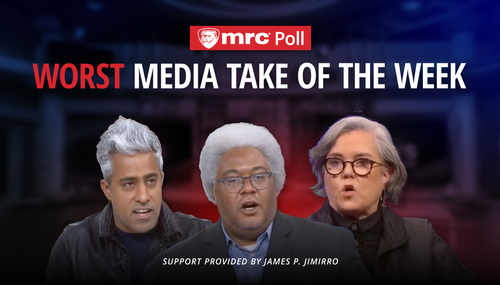If Hollywood has learned any lesson from the calamity of Trump’s election, it is this: the President-Elect has popped Tinsel Town’s gilded bubble. And for the better.
 According to Channing Dungey, president of ABC Entertainment Group, the 2016 election revealed an important insight about the disconnect between middle America and media elites. Ready for it? Shows like How to Get Away with Murder might not actually be very reflective of America at large.
According to Channing Dungey, president of ABC Entertainment Group, the 2016 election revealed an important insight about the disconnect between middle America and media elites. Ready for it? Shows like How to Get Away with Murder might not actually be very reflective of America at large.
"With our dramas, we have a lot of shows that feature very well-to-do, well-educated people, who are driving very nice cars and living in extremely nice places," Dungey, the first African American female to head a network, told entertainment news source C21 Media.
Acknowledging that those kinds of storylines will not be scrapped, she hinted that more relevant content would be included down the road. "In recent history we haven’t paid enough attention to some of the true realities of what life is like for everyday Americans,” she conceded.
Increasing characters’ socioeconomic diversity would certainly make shows more relatable, but ABC needs to pursue ideological diversity as well in order to truly increase its appeal. With a current line-up of progressive, conservative-mocking shows like Scandal, The Real O’Neals and Modern Family, it’s no wonder the network has alienated certain swaths of America.
Dungey is not the only one to recognize this systemic issue that plagues both entertainment and news media.
Following the election, an abundance of reflective op eds hit outlets from CBS, to The New York Times, to Vox. Perhaps the latter is most encouraging, as millennial driven outlets best reflect the direction our country is headed.
These articles attempted to address the literal elephant in the room: How did this happen?
CBS political correspondent Will Rahn blamed Trump’s ascendancy, in part, on “modern journalism’s great moral and intellectual failing: its unbearable smugness.”
Beyond the arrogance, Rahn accused journalists of a lack of empathy. “What’s worse, we don’t make much of an effort to really understand, and with too few exceptions, treat the economic grievances of Middle America like they’re some sort of punchline,” he chided.
In another fascinating piece, Vox’s Todd VanDerWerff discussed the idea of being “made to feel” a certain way about policy and social issues. Conservative Americans, he wrote, “believed that if they found marriage equality to be a step too far, or if they didn’t entirely understand the meaning of or need for ‘Black Lives Matter,’ or if they didn’t want to see sex depicted on TV, or if they thought owning a gun could be a lot of fun, well, they weren’t feeling the ‘right’ way, and they would be mocked for doing so.”
In other words, it’s easier to make conservatives the butt of a joke than it is to understand their point of view.
Let’s hope that influential executives like Dungey, and thoughtful journalists like Rahn and VanDerWerff will jumpstart a more understanding and ideologically diverse media culture. It would be a powerful first step toward bridging the divide between coastal elites and Middle America.





